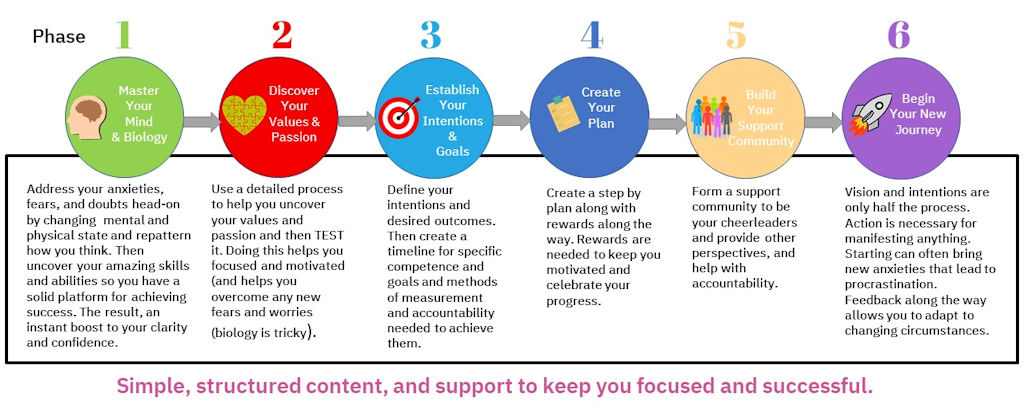Every year millions of people write down ambitious goals. They want to lose weight, build wealth, find success, or achieve peace. The intentions are genuine, the excitement is real, but by the next month, most of these goals are abandoned. The problem isn’t a lack of desire or willpower—it’s that goals alone don’t create change. What creates change is having a system that works.
The Problem with Goals
Goals sound inspiring. They give you something to aim for, a vision of what your life could become. But here’s the uncomfortable truth: goals don’t hold you up when life gets messy. They don’t support you when you’re tired, stressed, or overwhelmed. They’re static statements about a future you hope to reach, while your daily reality remains unchanged.
Most people experience the same frustrating cycle. They set a goal with enthusiasm, make plans, start strong, and then nothing. They return to old patterns, feel like failures, and eventually try again with a new goal. The cycle repeats because they never built a system to support the change they wanted.
Goals also create a problematic relationship with progress. They teach you to measure success only by the end result. Until you hit that target weight, earn that income, or achieve that milestone, you feel like you’re falling short. This all-or-nothing mindset breeds frustration and guilt, making it harder to stay consistent.
What Systems Actually Do
A system is fundamentally different from a goal. While a goal says “I want to be fit,” a system says “I work out every morning.” While a goal declares “I want financial freedom,” a system establishes “I invest regularly and spend wisely.” A goal is a wish you write down once. A system is proof you live every day.
Systems matter because they focus on the process, not the outcome. They transform abstract desires into concrete behaviors. Instead of hoping something magical will happen, you make sure progress happens through daily decisions that stack up over time.
The beauty of a strong system is that it doesn’t rely on motivation, which comes and goes like the weather. Systems run on action. They create automatic progress because they’re built into your routine, woven into your day, and aligned with your values. When your actions match the life you want, progress becomes inevitable.
Why Most People Stay Stuck
Many people say they want a better life, but their daily actions tell a different story. They claim health is a priority while building routines around convenience and comfort. They talk about wanting success while avoiding the necessary work. They desire peace while filling their minds with negativity and noise.
This disconnect happens because people live in two separate worlds. One world exists in their imagination—the vision of who they want to become. The second world is their habits—what they actually do every day. When these two worlds don’t align, frustration builds. You feel stuck because you’ve constructed routines around the wrong identity.
The truth is simple but hard to accept: you don’t get what you want by talking about it. You get what you want by proving it through your behavior. That’s the difference between people who grow and people who remain stagnant.
Building Systems That Work
Creating an effective system starts with honest self-awareness. Ask yourself: What does the life I want actually require from me right now? Not someday, not when conditions are perfect, but today.
If you want peace, maybe you stop reaching for your phone first thing in the morning. If you want strength, maybe you stop making excuses for skipping exercise. If you want success, maybe you stop waiting to feel ready and simply begin.
Start with your morning. Is it built with purpose or reaction? Do you control how your day begins, or does the outside world dictate your mood? What you do in the first hour reveals how serious you are about building a better life.
Then examine your time. How much of your day is spent on actions that genuinely move you forward? Not things that keep you busy or distractions that feel productive—actual actions aligned with your highest priorities.
Finally, consider your energy. Where does it go? If most of your energy drains into stress, scrolling, comparison, or people who deplete you, it’s time to reclaim it. Without energy, even the best system won’t work.
The Power of Daily Alignment
Your system should feel natural, not forced. When you force habits that don’t fit who you are, you build resistance. Every day becomes a battle, and soon you start avoiding the work—not because you’re lazy, but because it doesn’t feel authentic.
The solution is building patterns around your actual life, not some idealized version of yourself. You don’t need to wake at 4 AM if your mind works better at night. You don’t need to copy someone else’s morning routine if it doesn’t suit your rhythm. What matters is finding what fits you and repeating it.
Real transformation happens when you do something small enough to repeat day after day. You don’t need your system to be impressive. You need it to be real. If you can only manage ten minutes of focused work daily, start there. If you can stick to one healthy meal instead of three, begin with that.
The key is consistency without perfection. When your habits feel right, they don’t feel like chores—they feel like self-respect. You start looking forward to them not because they’re easy, but because they align with your values.
Measuring What Matters
Stop measuring your life by how far you still have to go. Start honoring what you did today. Progress isn’t always obvious or loud, but it’s always real when it’s consistent.
You don’t rise to the level of your dreams. You fall to the level of your systems. That system is built by what you repeat—not what you say, not what you plan, but what you actually do when nobody’s watching.
Every day you’re either building your future or blocking it through your repeated behaviors. If you want to be proud of your life, you have to be proud of your behavior. If you want to feel in control, you have to take control of the things that shape you: your choices, your habits, your routines.
Making It Last
Systems work because they remove the pressure of constant decision-making. When your daily actions are already decided, you don’t waste mental energy figuring out what to do next. You just do it.
This doesn’t mean living rigidly. Good systems are flexible enough to adjust when life changes, but stable enough to keep you grounded when everything feels chaotic. They bring you back to center, not through force, but through familiarity.
The life you want isn’t far away—it’s built into what you do next. So make that next move count. Choose actions that reflect your values, your standards, your future. Once your actions and your vision start matching, you don’t just wish for change. You live it every day.
Conclusion
Goals give you direction, but systems give you progress. Goals inspire you for a moment, but systems support you through the difficult middle when motivation fades. Goals measure where you want to go, but systems determine whether you’ll actually get there.
The question isn’t whether you have big dreams. The question is whether you have daily habits that make those dreams inevitable. Stop chasing goals that exist only in your imagination. Start building systems that exist in your reality. Because your system, repeated faithfully day after day, is your real future in motion.
Design it with intention. Live it with commitment. And watch your life transform—not through dramatic breakthroughs, but through the quiet power of consistent action.



 Together we will use a proven process for success
Together we will use a proven process for success

0 Comments